WE NEED TO RETHINK THE MILITARY LAW ENFORCEMENT ROLE IN FIGHTING CYBERCRIME
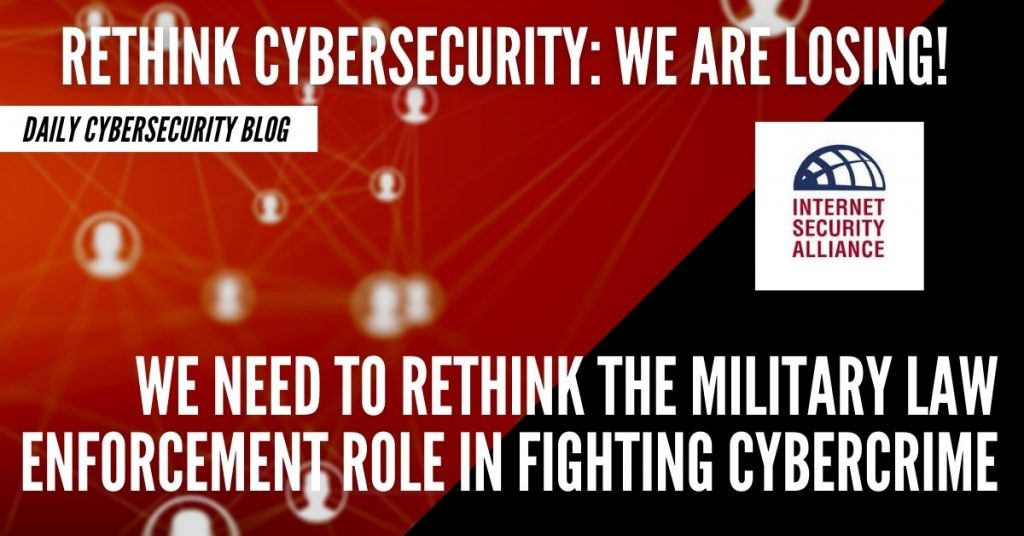
As cyber-attacks, including from nation states, are accelerating and the lines delineating criminal activity from nation state activity grow increasingly blurry. As a result, greater engagement from the military is now called for
TIME TO DO SOMETHING ABOUT CYBER CRIME
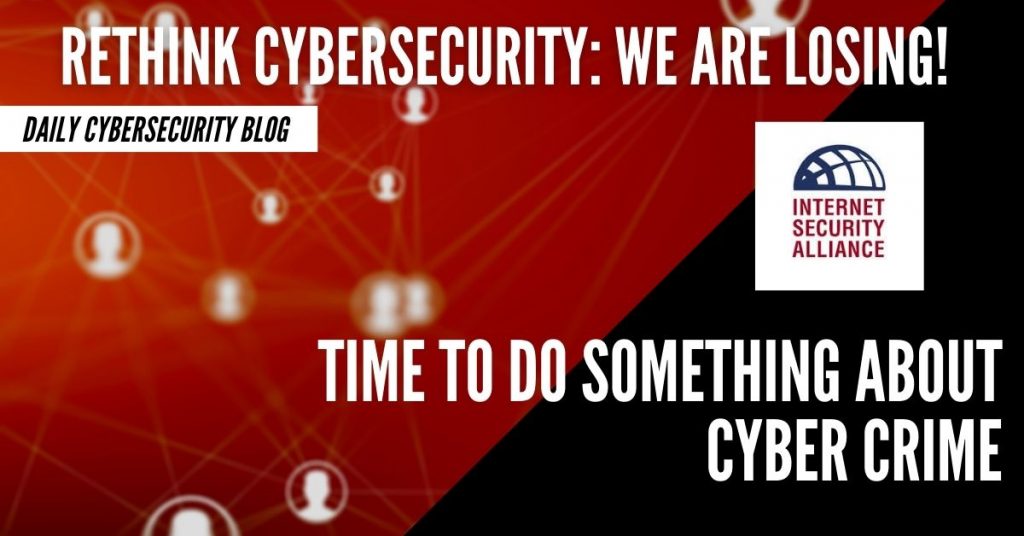
For the past two weeks we have been documenting the enormous costs, and total lack of effective action to address cyber-crime. Without repeating the staggering statistics, the evidence shows demonstrably that cyber criminals are getting filthy rich, their businesses expanding and innovating and there is virtually no chance that virtually any of the criminals are going to be held responsible.
Legal Structures are a Barrier to Fighting Cybercrime
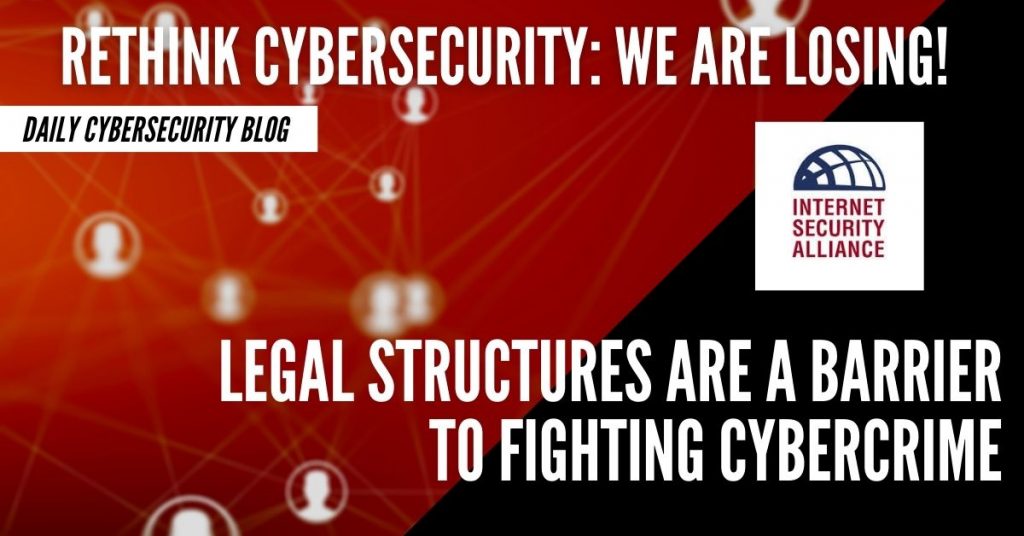
International jurisdictional disputes often keep law enforcement from effectively operating. What may be legal in one country may not be legal in the U.S. and may be treated differently in a third country. In these instances where cybercriminals are at large internationally, countries require extradition agreements. The U.S. has many of these such agreements, but currently does not have them with China or Russia.
DISORGANIZED LAW ENFORCEMENT AT THE CAPITOL: JUST LIKE CYBER
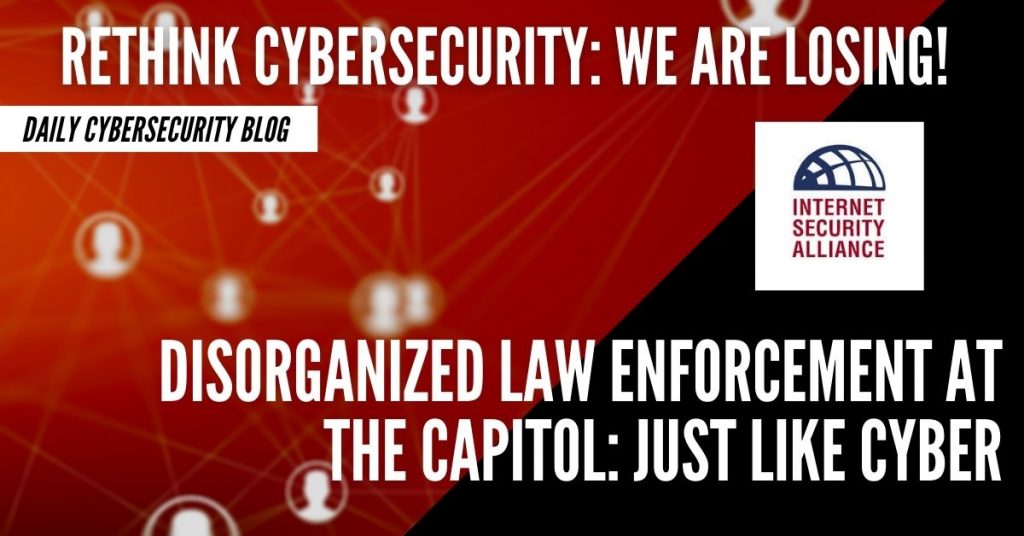
The lead story in today’s New York Times on the investigation into the January 6 attack on the U.S. Capitol reports that yesterday’s Senate hearing “also showed that the overlapping jurisdiction of the Capitol Police, District of Columbia government and other agencies created utter confusion that hindered attempts to stop the assault.”
THE FEDS SHOULD LEARN FROM THE PRIVATE SECTOR IN FIGHTING CYBER CRIME
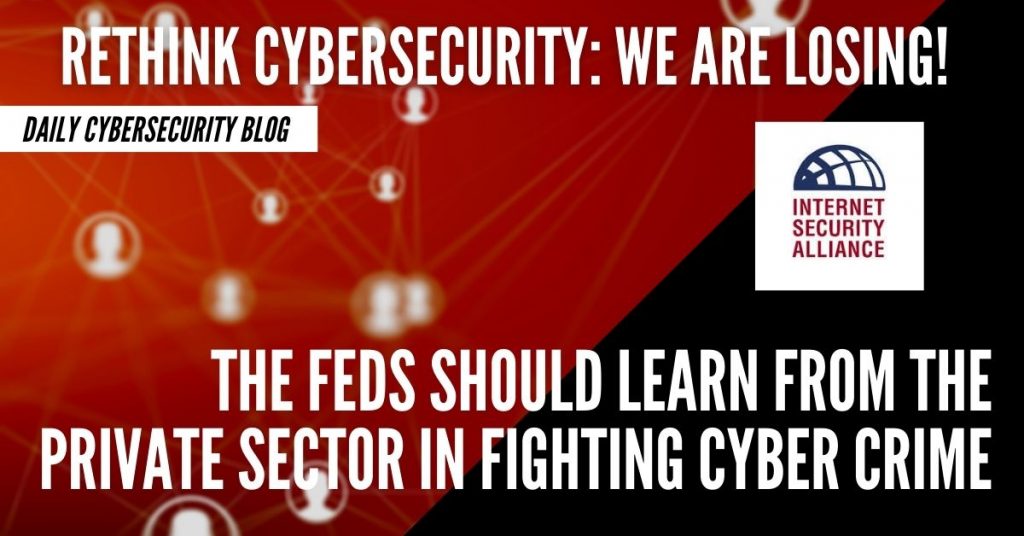
CrowdStrike just posted their latest research on cybercrime and found that intrusions threatening organizations’ cybersecurity across the globe grew – not 25 percent – but 400 percent in 2019 and 2020 combined. Nearly four out of five of those compromises in 2020 stemmed from cybercriminals, and attacks are unlikely to let up in 2021.
PUBLIC-PRIVATE PARTNERSHIP: PARENT-CHILD OR MARRIGE?
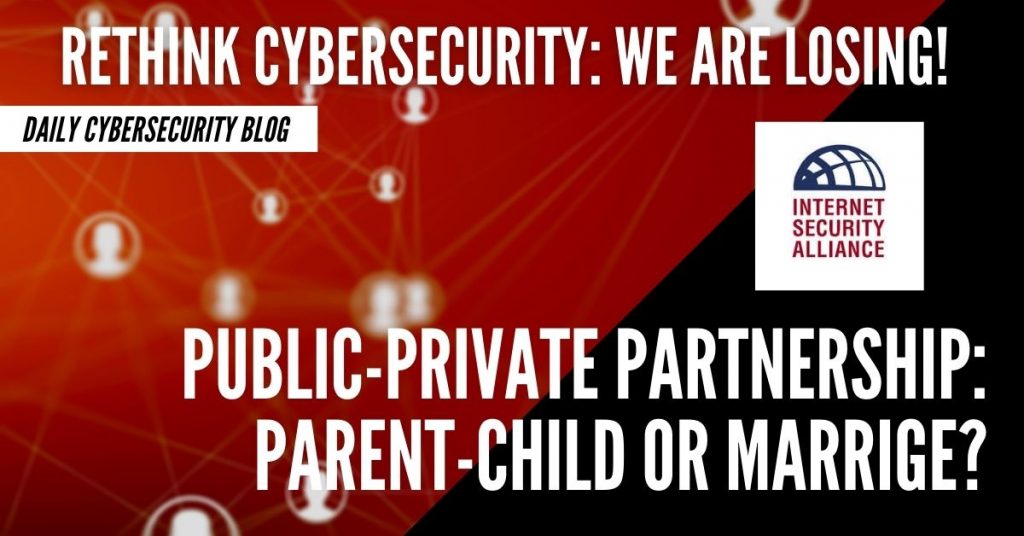
We are all in this together” has become one of the major narratives of the COVID era. The notion is that the virus can attack anyone of us – we are all essentially targets — and by protecting ourselves we are also protecting our friends and neighbors.
Internet Security Alliance: CMMC fails to account for the economics of small-business cybersecurity
The Pentagon’s Cybersecurity Maturity Model Certification program will fall short in securing the Defense Industrial Base because it fails to address underlying economic realities that limit how much small and mid-sized businesses can invest in cyber, according to the industry-based Internet Security Alliance. “However, it is sadly predictable that the CMMC, however much an improvement, […]
As holiday shopping season kicks in, cybersecurity group spotlights policy needs for securing retail sector
Cyber vulnerabilities in the retail sector, always a hot topic during the holidays, require an examination of underlying economics and incentives that could drive improvements in retailers’ cybersecurity, according to an Internet Security Alliance assessment that tracks with the group’s prescription for shoring up cyber across critical infrastructure. “The retail sector is one of the […]
ISA’s Clinton cites need to go beyond NDAA in SolarWinds response; congressional researchers see ‘no easy fix’
Larry Clinton of the Internet Security Alliance says the massive SolarWinds hack highlights the need for a rethinking of cybersecurity policy that goes well beyond Cyberspace Solarium Commission recommendations folded into the national defense bill, while the Congressional Research Service has issued a paper saying “existing programs” were unlikely to have foiled the sophisticated infiltration […]
ISA’s Clinton presses case against ‘traditional regulatory models’ for securing cyberspace
Industries covered by extensive cybersecurity requirements are not achieving better security results than less-regulated sectors, underscoring the need for rethinking the way policymakers approach securing critical infrastructure, according to Internet Security Alliance president and CEO Larry Clinton. The question of increased cyber regulation is likely to come into focus as the Biden administration appoints new […]

